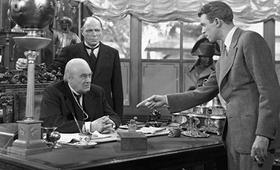Do you belong to a Credit Union? Many Americans do, about 97 million to be precise. A large number, although Credit Unions represent only 6% of financial transactions.
I’m posting about credit unions because these beneficial organizations are under attack. The link to innovation is profound — credit unions are how many people establish their financial base. People with a financial leg to stand on are the kind of people who start businesses and fuel the economy.
Have you ever heard the phrase “building up a stake?” You can’t start a new company, or even a family, with nothing. One must have at least seed money, or more, to get a start-up going. Credit Unions are a great way for average folks to save nickels and dimes and build up a stake. Also a good source for small business loans. Loans banks, typically, have no interest in giving, and when they do, they charge hefty fees.
A credit union is a membership organisation, and, are non-profit by definition. They are not banks. The Boy Scouts are a membership based organization. So are Ducks Unlimited, the NRA, and Melanoma Know More (a cancer charity). So are churches. Membership organizations are a cornerstone of American society. They do good work, mostly, and since they are non-profit, our tradition, history — and law — has been to not tax them and this has been a very good thing by and large. This is a freedom issue right? Citizens in a free country are allowed to organize themselves any way they want. It might be a chess club, a gun club, or, a collective for buying food (a co-op), or a collective for mutual financial services. How would you feel if Kroger’s lobbied the government against farmers markets or food co-ops? It’s also an economic issue. Credit Unions are an entry point into the economy for many people starting out, it’s how they get that first loan.
Essentially credit unions are a way for people, their members, to band together, pool resources, and provide members low cost loans and other small scale financial services. Profits go back into the pool for mutual benefit. Most members of credit unions are not wealthy folks. They are typically working people doing their best to save a bit of money, put together a stake, or buy the things they need and want. Things like cars, homes, equipment for farms or small businesses — you get the idea. Again, Credit Unions are not banks. Banks are for-profit (although this is “in theory” — didn’t we, as in our government, just rescue many banks to the tune of billions? But I digress…). One of the reasons banks fear credit unions is because people have a growing distrust for banks and bankers. I wonder why?
I was made aware recently that there is a move afoot to tax credit unions. It would seem banks and certain politicians are recognizing that: 1.) if they were able to tax credit unions there would be significant revenue to the government, and 2.) banks would cripple credit unions, who they see as competition if the tax exempt status were removed. Larger credit unions do indeed compete with banks. I don’t see that as a bad thing, and, I don’t see it as a reason to tax them. Churches compete with the Chicago Bulls for attendance — I don’t see the Bulls lobbying congress and the President to tax churches. Banks have advantages that Credit Unions don’t — like raising money by selling shares for instance. The playing field is already tilted in their direction. Politicians may like the idea of taxing Credit Unions as a way to balance budgets, but guys, that money is already taxed! It’s taxed coming out of Joe Toolbox’s pay check, and dividends on his account at the Credit Union are taxed again as income. Isn’t it a conservative principle to tax things only once?
Speaking of conservatives, that flagrant liberal, Ronald Reagan, sure wouldn’t like this move to cripple credit unions. Reagan to his everlasting credit, pushed for, and got, significant deregulation of credit unions. He thought it was soundly conservative to encourage people to save money and then buy things. When he left office the credit union movement had been strengthened (and so was the economy, it was a smart stimulus move). He did what he was good at, getting the government out of the way of consumer choice.
This new movement to tax Credit Unions is, in my view: un-American, anti-innovation, anti-consumer, anti-choice, anti-growth — and just plain stupid. It’s also quite un-democratic in that the deliberations on tax code revisions are done behind closed doors in Washington. In researching this post I can’t find one politician on record saying he wants the tax exempt status removed. That’s ominous in my view, it would appear they are hiding behind a cloud of governmental smoke.
If you tax credit unions, what’s next, the Boy Scouts? For more on the “Don’t Tax Credit Unions” side of the story, see http://www.donttaxmycreditunion.org or follow the has tag #DontTaxMyCu



